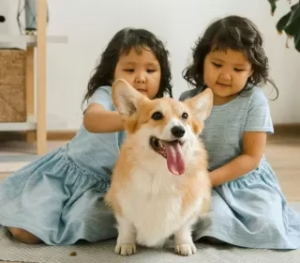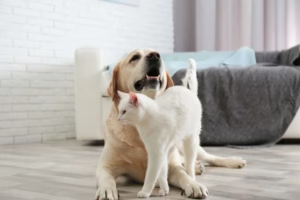
How Your Personality Determines Whether You’ll Own a Dog
Dogs are often called “man’s best friend,” but not everyone is drawn to owning one. Research suggests that our personality traits play a significant role in determining whether we’ll become dog owners. From extroversion to conscientiousness, certain characteristics make some people more likely to welcome a furry companion into their lives.
The Big Five Personality Traits and Dog Ownership
Psychologists often use the **Big Five personality traits**—openness, conscientiousness, extroversion, agreeableness, and neuroticism—to understand human behavior. Studies have found correlations between these traits and pet ownership.
Extroversion: The Social Dog Lover
Extroverts, who thrive on social interaction, are more likely to own dogs. Dogs provide companionship and opportunities to meet people (e.g., at dog parks or on walks). A study published in *Anthrozoös* (2010) found that extroverts were more likely to have dogs, possibly because pets help fulfill their need for social engagement.
Agreeableness: The Nurturing Type
People high in agreeableness—those who are compassionate, empathetic, and cooperative—often feel a strong bond with animals. They enjoy caring for others, making them ideal candidates for dog ownership. Research supports that agreeable individuals are more likely to adopt pets, seeing them as family members rather than just animals.
Conscientiousness: The Responsible Pet Owner
Conscientious people are organized, disciplined, and reliable—traits necessary for responsible pet ownership. Dogs require routine feeding, exercise, and veterinary care, which conscientious individuals are more likely to provide. A study in *Personality and Individual Differences* (2019) found that dog owners scored higher in conscientiousness than non-owners.
Neuroticism: Emotional Support Seekers
People with higher neuroticism (those prone to anxiety or emotional instability) may be more likely to own dogs for emotional support. Dogs offer unconditional love, reducing stress and loneliness. However, some studies suggest that highly neurotic individuals might struggle with the long-term responsibility of pet care.
Openness: The Adventurous but Selective Pet Owner
Those high in openness love novelty and variety. While they may enjoy animals, they might prefer low-maintenance pets or exotic breeds. Some research indicates that open individuals are less likely to own dogs unless they see pet ownership as an enriching, unconventional experience.
Loneliness & Attachment Style
– Loneliness & Attachment Style**: People who feel lonely or have secure attachment styles may seek companionship in dogs.
– Lifestyle Preferences**: Active individuals who enjoy outdoor activities are more likely to own high-energy breeds.
– Childhood Experiences**: Those who grew up with dogs are more likely to own them as adults.
Conclusion
Your personality significantly influences whether you’ll own a dog. Extroverts and agreeable people may seek canine companionship for social reasons, while conscientious individuals are better equipped for the responsibility. Meanwhile, those with high neuroticism might rely on dogs for emotional support.
If you’ve ever wondered why some people are “dog people” and others aren’t, the answer may lie in their personality traits. So, the next time you meet a dog owner, consider what their pet might reveal about them!


